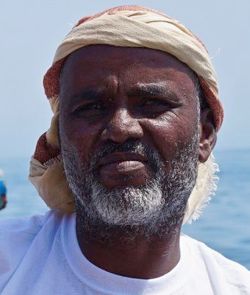 Every now and then we hear about foreign ships getting attacked by pirates in Somalia, Nigeria and some other parts of Africa. There are several thousands of hostage stories online today and the story is almost always the same.
Every now and then we hear about foreign ships getting attacked by pirates in Somalia, Nigeria and some other parts of Africa. There are several thousands of hostage stories online today and the story is almost always the same.
In almost all these stories, pirates in Africa attack foreign ships, take hostages and demand huge sums of money as ransom. CNN, BBC, Fox News, etc. are full of such stories and the untold evil African pirates unleash on foreign vessels. Sadly however, these major media outlets fail to point out the root causes.
Piracy is evil and I am not in any way or form condoning or justifying such barbaric acts. However, it is better the world gets to know some of the root causes of why some people in Africa have resorted to piracy.
Somalia has been in the news for quite a long time and almost the entire world has heard about the piracy situation in Somalia in East Africa. Almost the whole world knows why Somalia is a no-go zone for foreign vessels. Some blame the political instability, poverty and the high unemployment rates for the piracy situation in Somalia.
It may surprise you to know however that, about 97% of recent piracy attacks and kidnappings at sea occured on the Gulf of Guinea (a vast and diverse region of the west coast of Africa covering about 6,000 km of coastline) and not in Somalia .
The Gulf of Guinea streches from Senegal in West Africa to Angola in South-Central Africa and it is one of the most important shipping zones on the continent. About 1,500 cargo ships, fishing vessels, tankers, etc. navigate the Gulf of Guinea every single day transporting oil and gas as well as goods to and from the central and southern parts of Africa.
The piracy situation on the Gulf of Guinea started about 60 years ago when oil was first discovered in the region by Shell-BP. Shell started exporting oil from Nigeria in 1958 and is Nigeria's oldest private sector energy company.
Sadly however, while the government and multinational companies like Shell, Addax Petroleum, South Atlantic Petroleum, Total Engergies, Chevron, Equinox ASA, Exxon Mobil, Nexen Petroleum and Hardy Plc continue to make billions of dollars from the oil in the Niger Delta region of Nigeria, the oil exploration has completely destroyed the local economy of the region.
The local Niger Delta population of Nigeria has suffered and continues to suffer greatly to a point where some see no other option than to forcefully take what rightly belongs to them.
There used to be some very properous and thriving farming and fishing communities in the Niger Delta region of Nigeria before the oil discoveries and exploration. The land was rich and very fertile for agriculture. The rivers, lakes and other water bodies in the area were all teeming with fish and other natural resources. For centuries, the people in this part of Nigeria tilled the land and fished the waters for a living.
However, as most of you know, oil exploration often comes at a great cost to the environment. In the case of the Niger Delta region, the land is now soaked with oil making it unproductive. The oil discoveries and exploration destroyed so many farmlands in the area. Also, several farmers were forced to abandon their farmlands due to the fact their once fruitful and productive lands are now polluted and barren.
Also, as I mentioned, fishing used to be a very prosperous business in this part of Nigeria. However, fishermen in the area had to abandon their age-old profession due to the fact that, the once rich and plentiful water bodies are now polluted, toxic and barren. The people in the Niger Delta region of Nigeria now struggles to get even good drinking water and water for domestic purposes. Also, several diseases and illnesses now run rampant in this part of Nigeria all because of the pollution situation.
Sadly, the local community receives no help at all from these multinational oil companies destroying their sources of living. The people living in this part of Nigeria don't even receive help from their federal government. How else do these people survive?
